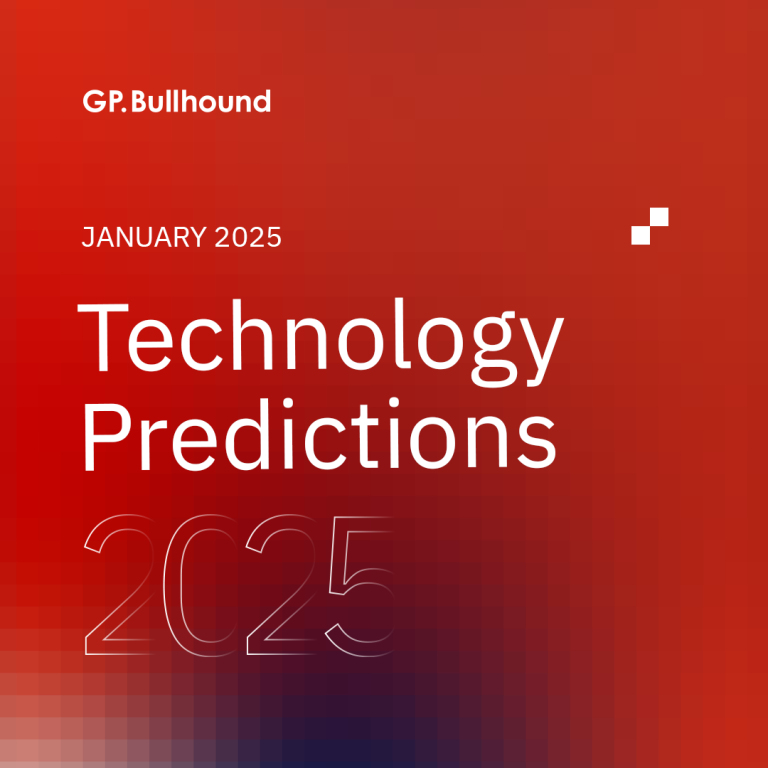After a year of tangible progress, 2025 appears to be the time when once-theoretical technologies begin to become a concrete reality. Quantum sensing is moving out of research labs and into practical applications with corporate investment and government support at unprecedented levels. The fusion of text, images and audio through multimodal AI paves the way for richer, more intuitive interactions that redefine entire markets. Meanwhile, agentic AI takes its first cautious steps beyond controlled pilots, hinting at a future where intelligence acts independently to solve complex problems. In this context, businesses and industries are recalibrating around trust, ethics and infrastructure, both on Earth and in orbit, to ensure that innovation not only advances but endures. Here’s what awaits us for 2025.
“As 2025 approaches, the technology landscape is evolving at an unprecedented pace, driven by advances in artificial intelligence and quantum technology that challenge assumptions about digital identities, cybersecurity, space, etc. Amid economic uncertainty, AI remains at the heart of this transformation, with its potential amplified by developments across sectors that extend its applications well beyond traditional boundaries.
It is crucial that organizations move beyond experimentation and deeply integrate AI into their operational frameworks, optimizing workflows and automating complex decision-making. This shift promises to redefine productivity standards and open new economic frontiers. The commodification of AI, alongside the rise of specialized and accessible applications, is enabling businesses across industries to capitalize on advances in machine learning, while data, the fuel of this transformation, becomes a invaluable asset.
In this time of profound technological change, one certainty remains: companies that cling to outdated thinking will be left behind. As John Maynard Keynes observed: “The difficulty lies not so much in developing new ideas as in escaping old ones.” » This idea is more relevant than ever because thriving in the AI era requires a radical rethinking of organizational structures and roles. The impact of AI is already as transformative as that of the Internet, reshaping the way we interact with technology and each other. The question is no longer whether AI will change the world – it already has. Now the challenge is how quickly we embrace this change and what we are willing to leave behind to make room for the future,” commented Per Roman, Managing Partner, and Alec Dafferner, Partner, GP Bullhound
GP Bullhound Technology Forecast for 2025
- Multimodal AI is reshaping industries and redefining human-technology collaboration.
Multimodal AI, integrating text, images and audio, will deliver richer user experiences. Initial deployments in customer service, education and entertainment are expected to result in productivity gains and up to a 20% improvement in operational efficiency for businesses investing in this technology.
- Agentic AI Advances in Niche Use Cases, While Larger-Scale Implementation Lags
Agentic AI will deliver 15% to 30% efficiency gains in route optimization and resource allocation, although fewer than 25% of large organizations will attempt large-scale deployments. Ongoing issues with scalability and transparency will keep agentic AI mostly in pilot phases, focusing this year on high-value niches rather than traditional operations.
- Enabling Technologies Make Quantum Practical
Increased government spending and growing corporate interest will accelerate pilot projects for real-world quantum sensors. These advances will extend beyond the lab, as financial services quadruple their quantum budgets to tackle complex calculations.
- The year robots leave the labs and enter our lives
Deployments of robots and drones will intensify as the global robotics market approaches $74.1 billion. AI-driven IoT integration will produce more adaptive robots and drones in logistics, healthcare and hospitality, reducing human error rates by up to 50% and significantly increasing production.
- The evolution of voice user interfaces improving the way we work, live and learn
Voice assistants will become more context-aware, anticipating user needs without explicit commands. This development will support a market that is expected to grow from $21.16 billion to $25.78 billion over the course of the year. Healthcare and education pilots will demonstrate improved patient compliance and management of complex queries via voice interfaces.
- The convergence of digital identity and AI governance will redefine trust and security
The growing adoption of biometric and decentralized identification solutions will accelerate secure authentication as the digital identity market grows. Emerging regulatory frameworks and global AI governance efforts will encourage responsible practices, improving data privacy, compliance and consumer trust in sectors like finance.
- Autonomous AI transforms cybersecurity
As malicious actors use AI at scale, businesses will adopt AI “co-pilots” for faster threat analysis, reducing response times and paving the way for fully autonomous cybersecurity defenses and human.
- Data Integration Tools Drive Enterprise AI Adoption
AI-augmented data integration platforms will reduce manual tasks by 30%, fueling smarter decision-making and pushing businesses toward a 20% increase in profitability.
- Enhanced Cybersecurity Mesh Security
Decentralized, AI-powered cybersecurity frameworks will begin to replace perimeter-based defenses, reducing single points of failure and improving breach containment. Early adopters will experience less disruption as dynamic threat detection and adaptive responses protect multi-cloud environments, improving resilience and preserving confidence in the face of increasing cyber risks.
- Growing threats in space demand public-private collaboration and dual-use funding
Commercial satellite deployments will accelerate, surpassing previous annual records and intensifying the need for traffic management, debris removal and enhanced orbital security. As space becomes increasingly contested, defensive-grade protections against anti-satellite threats will make orbital infrastructure essential to national security strategies.
About GP Bullhound
GP Bullhound is a leading technology advisory and investment firm, providing deal advice and capital to the world’s best entrepreneurs and founders. Founded in 1999 in London and Menlo Park, the company now has 13 offices across Europe, Asia and the United States. For more information, please visit www.gpbullhound.com.


